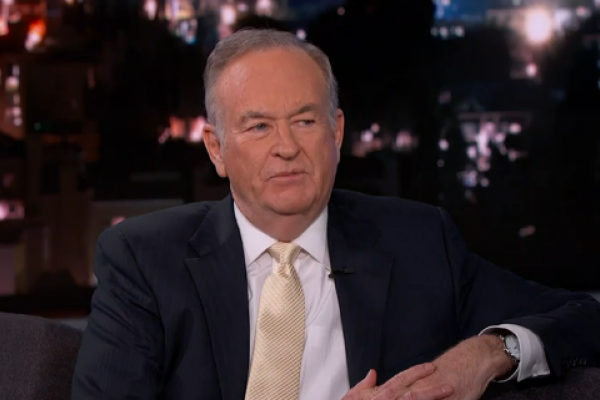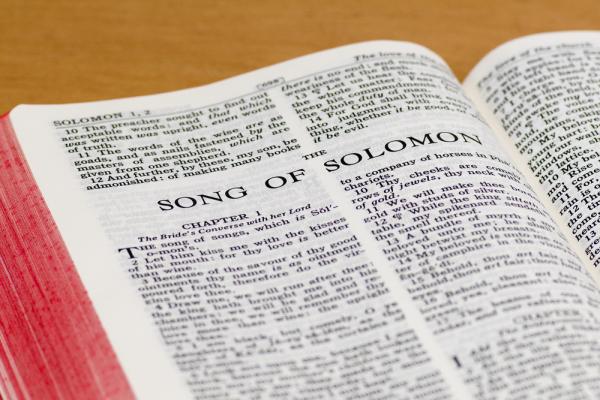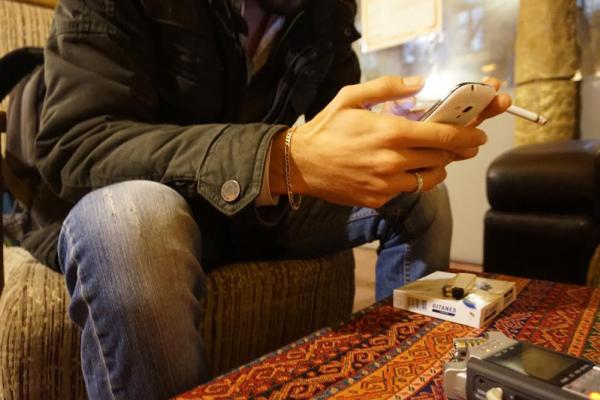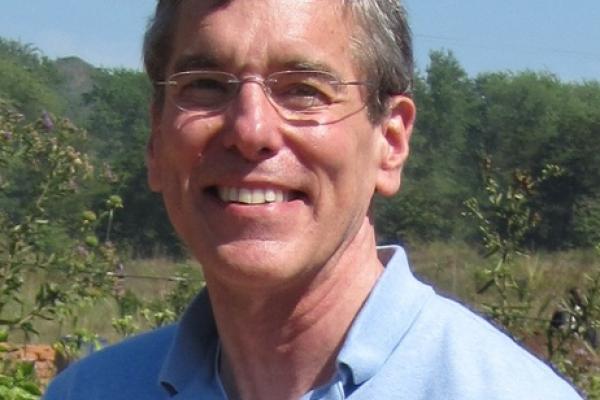It is a great and terrible irony that our country’s correctional system does not often allow for or take much pride in perpetrators’ self-correction.
Yet to the degree that transformation within the system is possible, such appears to have happened for Kelly Gissendaner. The 46-year-old woman was sentenced to death for the 1998 murder of her then-husband, Doug. It is well-documented that her accomplice and then-boyfriend committed the act — he is sentenced to life, with a chance at parol.
Gissendaner faces excecution tonight at 7 p.m. EST.
If carried through, it will be the first time since 1976 that the state of Georgia will execute an individual who was not the person physically using violence in the crime.
Gissendaner’s case — that of a person guilty of murder whose profound internal transformation while in prison has led to a contemplative life of studying theology, mentoring at-risk youth, offering pastoral care to fellow inmates, and expressing full and sincere remorse for her actions — calls into stark question whether our criminal justice system, and specifically the state's use of the death penalty, honestly allows for the possibility for redemption.
Violence against women and girls is not only a “women’s issue,” but a human rights issue that affects all of us. We are indeed “caught in an inescapable network of mutuality,” as Dr. King said, “Whatever affects one directly, affects us all indirectly.” The abundant life that Jesus offers is deeply connected to the well-being of others. (John 10:10)
For men and women to experience reconciliation and wholeness, we must prayerfully work together for gender justice. Download our free prayer calendar. It’s full of facts and prayer requests to help you put your faith into action to end violence against women.
Share it during Women’s History Month with your sisters and brothers, your sons and daughters. Pray through the calendar as part of your Lenten journey. Encourage your friends and faith community to raise their voices to make violence against women history.
Together, through prayer and action, we can imagine a new way forward for both women and men—for the flourishing of all God’s children.
Only 15 women have been executed in the U.S. since the reinstatement of the death penalty in 1976. For two death penalty cases involving women to make the news in the same week is unprecedented – but it’s happening.
One is Jodi Arias, convicted of killing her ex-boyfriend in 2008, whose sentencing trial was this week. She could face the death penalty in Arizona.
The other is a lesser-known case in Georgia — Kelly Gissendaner, convicted in a 1997 Atlanta murder plot that targeted her husband. Though sentenced to death, it is clear that with a little better legal coaching, Ms. Gissendaner could have plea-bargained for her life. That’s exactly what her husband’s killer, Gregory Owens, did. And now he’s behind bars as she counts down the hours to her death. It just doesn’t feel like your life should depend on how well you play the legal cards, but it sure seems to.
Kelly Gissendaner was supposed to die Wednesday night — but there was an interruption.
I’m cringing as I write this.
That tells you a lot about me. When it comes to politics and theology, I identify as liberal. I firmly believe that Jesus wanted everyone fed, wanted universal health care, and that the Kingdom of God is about politics. It’s about structuring our personal and communal lives in a nonviolent way that ensures everyone has food to eat, debts are forgiven, and healing is freely provided for everyone.
Bill O’Reilly symbolizes almost everything that I loathe about American Christianity. His hyper-conservative politics is reinforced by his hyper-conservative theology. Many of my family members love his show, but I cringe when I hear his voice.
1. PHOTOS: Painter Immortalized Last Meals of 600 Prisoners Put to Death
Artist Julie Green collects information published in death-row inmates’ death notices about their last moments. She then puts cobalt blue paint to porcelain plates to illustrate their final meals — from pizza and birthday cake to Jolly Ranchers. Her goal: “to continue paining fifty plates a year until capital punishment is abolished.”
2. Net Neutrality Victory Is Civil Rights History in the Making
“Today’s civil rights activists have a much more powerful tool at our disposal – the open Internet. Our ability to be heard, counted, and visible in this democracy now depends on an open Internet, because it allows voices and ideas to spread based on their quality – not the amount of money behind them.”
3. WATCH: It Turns Out Lighting Affects Color
And lots of other things, actually. If you’re still hashing it out with your roommates or spouse about the color of #TheDress, here’s science (and music!) to the rescue. (Team #whiteandgold!) Also, if you need more science, you can always ask Science Mike, who offers this great video explainer.
4. Activists Warn of End of Christian Presence in Middle East
Following ISIS’ kidnapping of at least 90 Assyrian Christians in an attack on about 35 mostly Assyrian settlements, groups in the region warn that we may be witnessing the end of Christian presence in the region: “After the Iraq war of 2003, and since the Syrian crisis began, the persecution unleashed on them – including extortion, kidnappings, murder, the ethnic cleansing of entire swaths of Baghdad, the Nineveh plains, and now much of north-east Syria, has been so vast that their very existence in their ancestral homelands is in grave peril.”
5. In 23 States, the Largest Religious Group Is Now ‘Unaffiliated’
This, according to Public Religion Research Institute’s just-released American Values Atlas, which breaks down various religious and political demographics. Find out the largest religious group in your state at the link!
6. WATCH: Jim Inhofe’s Snowball Has Disproven Climate Change Once and For All
That one time a United States senator — the one who also happens to be the chairman of the environment committee — threw a snowball while on the floor to dispute climate change. Because snow.
7. An Anti-ISIS Summit in Mecca
“Whether ISIS’s deeds are labeled ‘violent extremism’ or ‘Islamized terrorism,’ the conversations in Washington and Mecca had at least one thing in common: They deepened the debate over whether ISIS and its fellow travelers are ‘Islamic,’ and whether the answer matters in the first place. That debate is not just academic. It has real consequences for how the Islamic State’s opponents mount their counteroffensive.”
8. VIDEO: Banksy Goes Undercover in Gaza, Releases MIni-Documentary
The unidentified street artist Banksy has re-emerged in Gaza to create a political mini-documentary about life inside the war-torn region.
9. Why We Must Change How We Change the World
World Relief President and CEO Stephan Bauman’s new book Possible: A Blueprint for Changing How We Change the World is now out. In this piece, he lays out why he is hopeful about the future of efforts to address injustice: “We are caught in a vicious cycle, a dangerous dynamic that shapes our views about the people who experience suffering. As a result, those trapped in poverty are dehumanized and poverty is dumbed down while good, well-intended people really believe they are caring, world-conscious, and ethical. But change is coming.”
10. 10 Things Catholics Are Tired of Hearing
Why do you worship statues? Why do you pray to Mary instead of God? And more confusion in the Protestant understanding of Catholicism. Handy to bookmark for the next inevitable conversation about the purpose of confession or the Apocrypha.
Why are we so fascinated with any historical artifact — relics, as some call them — associated with Jesus?
Even the most suspect claim of a “lost” gospel or an “explosive” archaeological find that purports to shed light on the man from Galilee can generate a media frenzy, and gives believers — or skeptics — fresh evidence to try to finally win their argument while leaving their foes on the defensive.
Think of the recent “gospel” that seemed to show Jesus had a wife — and she was, of all people, the scandalous Mary Magdalene. Or the discovery a few years ago of an ancient papyrus that depicted Judas as the hero of the gospel story, not the great betrayer. Or, a few years before that, the revelation of a bone box with “brother of Jesus” inscribed on the top.
The argument in these purported blockbuster discoveries is that everything we’ve ever known about Christianity is probably false and that there has been a massive, millennia-long cover-up to hide the real truth. Remember The Da Vinci Code? There’s a reason that fiction sounded like fact to a lot of people.
Yet in spite of the overblown claims and dodgy artifacts floating around out there, genuine artifacts and solid historical research still provide the best window into that long-ago world and the best chance to figure out who Jesus really was, and what he meant.
A student group in South Africa this month called on all Jews to leave the Durban University of Technology, an act of anti-Semitism that Americans could not imagine on their own college campuses.
But a comprehensive survey of anti-Semitism at American colleges released this week shows that significant hostility is directed at Jews on U.S. campuses, too.
The National Demographic Survey of American Jewish College Students, produced by a Trinity College team well-known for its research on religious groups, found that 54 percent of Jewish students experienced anti-Semitism on campus in the first six months of the 2013-2014 academic year.
Professors Barry A. Kosmin and Ariela Keysar asked 1,157 students in an online questionnaire about the types, context and location of anti-Semitism they had encountered, and found that anti-Jewish bias is a problem for Jews of all levels of religious observance.
“And this is a national problem; it’s not just happening in pockets of areas,” Keysar said. “Hopefully people will read this survey as a wake-up call. Clearly, the students want us to do something.”
The survey, she also noted, was given to students months before last summer’s war between Israel and Gaza, which ignited much anti-Israel sentiment on college campuses, sentiment that at times crossed the line into anti-Semitism.
I am black, but [AND] comely, O ye daughters of Jerusalem, as the tents of Kedar, as the curtains of Solomon. Look not upon me, because I am black, because the sun hath looked upon me: my mother's children were angry with me; they made me the keeper of the vineyards; but mine own vineyard have I not kept. Song of Songs 1: 5-6
As the Executive Director for Faith in New York, an affiliate of the PICO National Network, I organize faith communities to take action for justice concerning issues that threaten the health of our communities. One of our campaigns is Live Free New York, which is a part of a national movement in which people of faith are working to end mass incarceration, gun violence, and police brutality through policy change and direct action.
Mass incarceration is an issue with many tentacles, and in New York, one tentacle is school suspension rates that are through the roof for black children. What many in the black community don’t understand is that according to data from the Office for Civil Rights at the U.S. Department of Education, as presented in a recent New York Times article: “black girls in public elementary and secondary schools nationwide are suspended at a rate of 12 percent compared with a rate of just 2 percent for white girls and more than girls of any race or ethnicity. … An analysis by Villanova [University] researchers of data from the National Longitudinal Surveys of Youth and the National Longitudinal Study of Adolescent Health indicated that black girls with the darkest skin tones were three times more likely to be suspended than black girls with the lightest skin.”
Hassan, a chain-smoking 20-year-old from Syria, sits in a cafe across the border from his homeland, one of thousands who escaped the clutches of the Islamic State group.
Not so long ago, he was one of their recruits, having undergone four months of religion training where he learned how to pray and read the Quran, while at the same time patrolling the rebel stronghold’s checkpoints.
“We loved them so much,” said Hassan, who was not willing to be identified by his real name for fear of retribution against family members still in Syria. “They gave us so much information and taught us very sweet things about Islam.”
But then things started to change.
As the Islamic State group grew in power, he saw more orders to target members of other widely popular Sunni rebel groups. At checkpoints, Hassan said, recruits were commanded to arrest or kill any members affiliated with the Free Syrian Army, an umbrella of rebel groups that he and his family supported.
His mother, who was growing increasingly disgruntled with the Islamic State’s strict rules, confronted him. “‘Why are you doing this?'” he said she told him. ‘”This is wrong.'”
It wasn’t long after, as intense fighting broke out with another Islamist brigade, Ahrar ash-Sham, that Hassan decided to stop fighting for the Islamic State.
It was 1987. I walked across Rutgers University campus with another freshman friend. We were on our way to a meeting for Campus Crusade for Christ (now Cru). In the gobs of our gab we happened upon the topic of the recent scandalous departure of Intervarsity Christian Fellowship president, Gordon McDonald. Interim President, Tom Dunkerton, guided the organization for the next year, appointing Dr. Samuel Barkat as first VP of Multiethnic Ministries. Soon after, Dr. Steve Hayner would accept the mantle of president of the troubled organization. Over the next 13 years, Hayner guided Intervarsity into a period of stability, growth, and racial healing.
Perhaps the most significant contribution of Hayner’s leadership was his close partnership with Dr. Barkat. Together they stood on the sovereign foundations of Intervarsity’s historic struggles toward racial righteousness and guided the organization through a deep examination of its multiethnic dynamics and its white dominant culture. Ultimately, their work led the parachurch collegiate ministry through a transformative examination of its own white western cultural lens and how that lens shaped their understanding of Jesus and the gospel.








